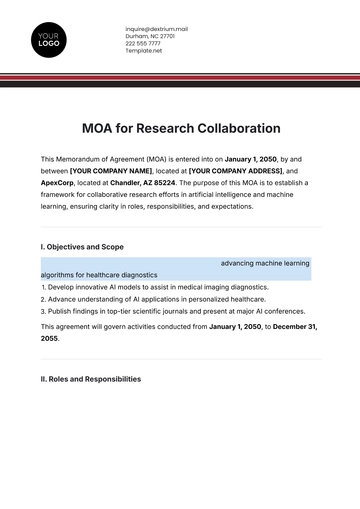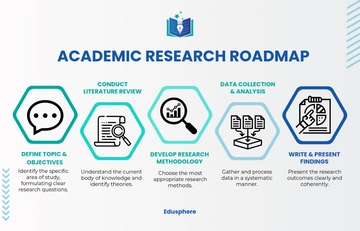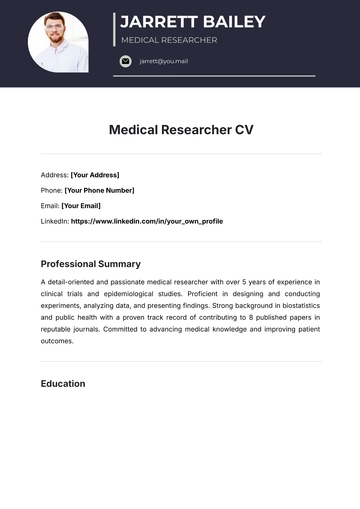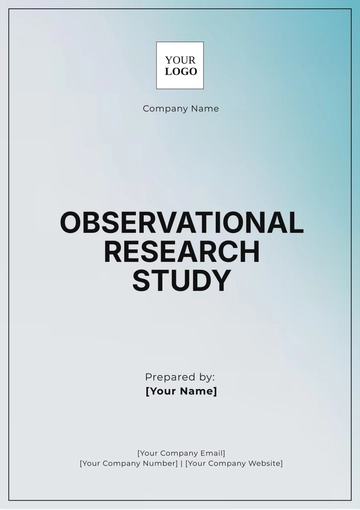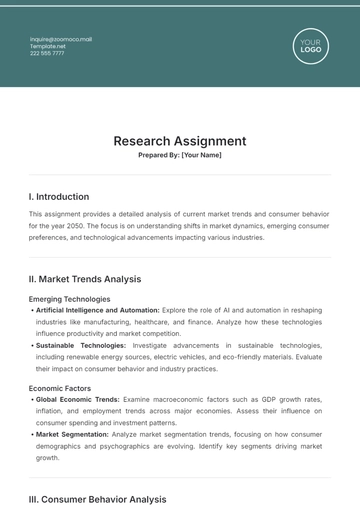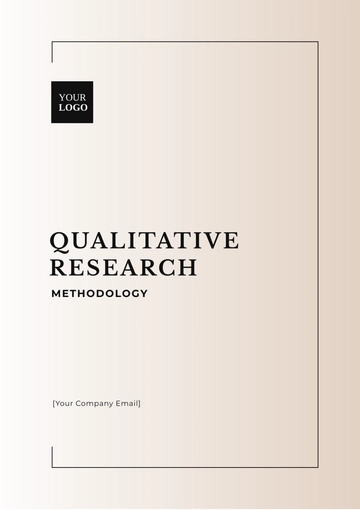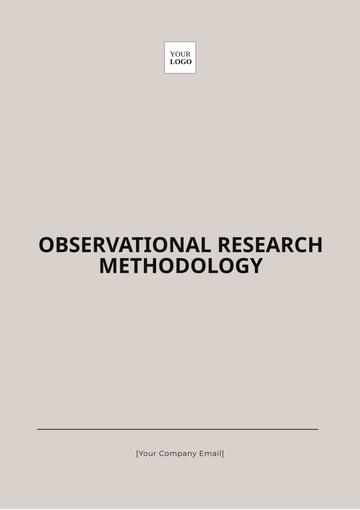Free Legal Case Research Guide
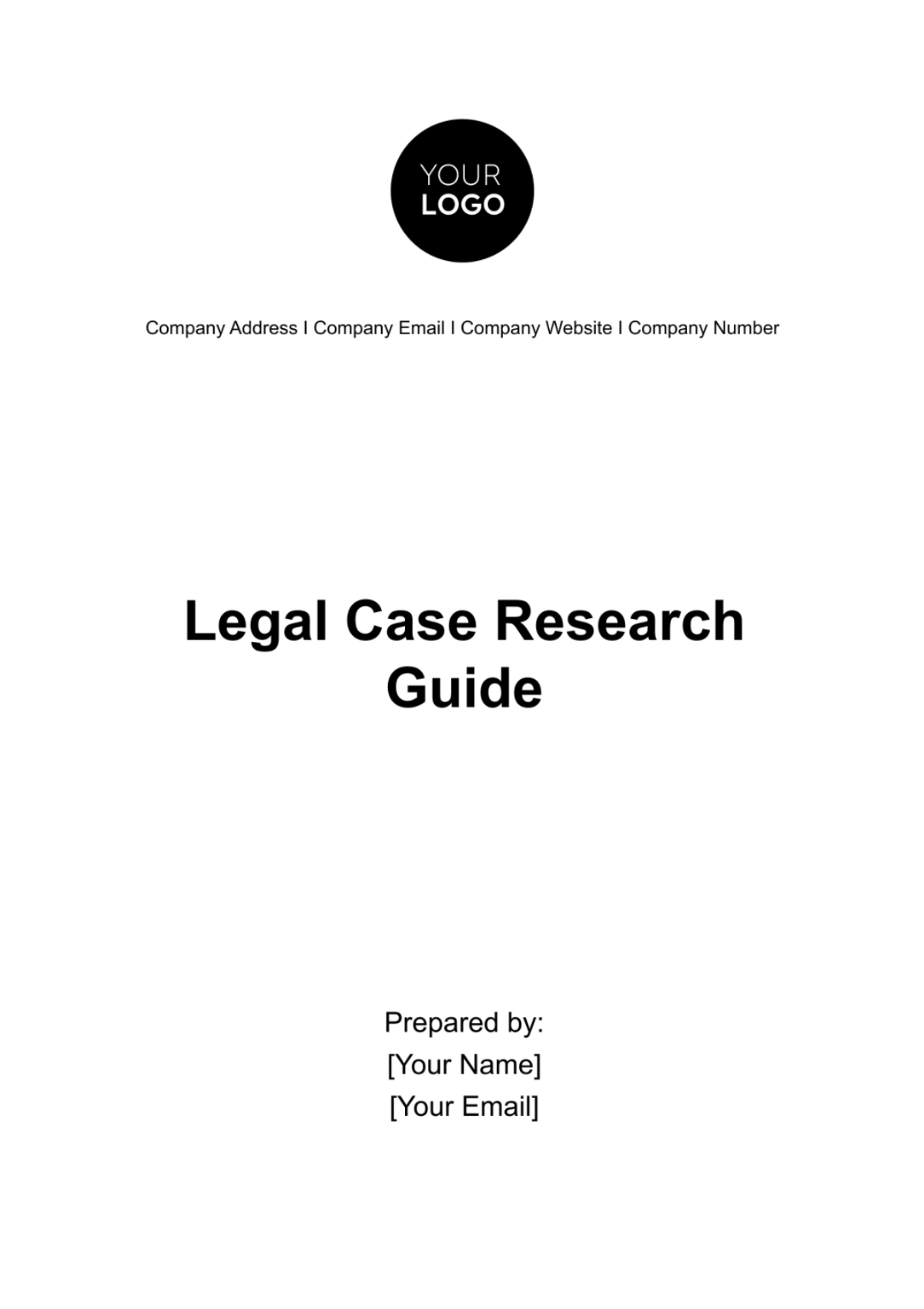
Introduction
In the intricate world of legal affairs, the ability to conduct thorough and effective legal research is invaluable. Whether you're navigating the complexities of litigation, ensuring compliance with regulations, or managing risks, understanding the underpinnings of relevant laws and legal protocols is essential. [Your Company Name] is committed to providing its team with the resources and knowledge necessary to undertake this critical task. This Legal Case Research Guide is designed to offer a structured approach to legal research, from the initial preparation phase through to the presentation of findings. By following this guide, our team can enhance our liability management, decision-making processes, compliance efforts, and risk mitigation strategies.
I. Preparation Phase
1. Define the Legal Issue
The foundation of any legal research lies in the precise articulation of the legal issue at hand. This crucial step demands more than just a general understanding of the subject matter; it requires a clear and specific formulation of the legal question or problem. The specificity of the issue directly influences the direction and scope of the research, enabling a focused and targeted approach.
To effectively define the legal issue, it’s important to gather preliminary information that may include the context of the matter, relevant facts, and any legal theories already considered. This initial gathering of information can help in identifying the core legal question, which may pertain to matters of statutory interpretation, legal rights and obligations, or the applicability of legal principles to certain facts.
A well-defined legal issue not only streamlines the research process but also helps in identifying the most relevant legal sources and authorities. It acts as a guiding beacon throughout the research process, ensuring that efforts are concentrated on retrieving information that is directly relevant to the issue.
2. Outline a Research Plan
Efficient legal research is the product of meticulous planning. An effective research plan acts as a roadmap, outlining the steps necessary to navigate through the vast landscape of legal information. This plan should clearly state the research objectives, which encompass what the research aims to achieve. Objectives may range from understanding the current state of the law on a particular issue, to identifying precedents that support a legal argument.
The scope of the research is another critical component of the plan, defining the boundaries within which the research will be conducted. This includes geographical jurisdictions, relevant time frames, and specific areas of law. Setting the scope helps in focusing the research efforts and avoiding unnecessary digression into unrelated legal territories.
Identifying the sources of information is integral to the research plan. This involves selecting the types of legal sources that will be consulted, such as statutes, case law, regulations, and secondary sources like treatises and legal commentaries. Prioritizing these sources based on their relevance and authority ensures an efficient research process.
Finally, establishing timelines is essential for managing the research efficiently. Deadlines for completing various stages of the research help in ensuring that the work progresses steadily towards completion, without last-minute rushes that can compromise the quality of the research.
II. Research Phase
3. Comprehensive Legislation Study
A thorough investigation of relevant legislation forms the backbone of legal research. This step involves a detailed examination of statute books, online legal databases, and government publications to collect all laws, acts, and statutory instruments pertinent to the legal issue.
Statute Books: These are the primary sources for legislation. They provide the official text of statutes, offering the most reliable form of legal authority. Statute books are indispensable for understanding the exact wording of the law, as the interpretation of legal texts often hinges on specific phrases or terms.
Online Legal Databases: Modern legal research heavily relies on online databases such as Westlaw or LexisNexis. These platforms offer comprehensive access to a wide range of legal documents, including statutes, case law, legal articles, and more. They also provide advanced search features, allowing researchers to filter results by jurisdiction, topic, or date, making the search for relevant legislation more efficient.
Government Publications: For statutory instruments and regulations, government publications are the authoritative source. These documents provide details on the implementation and interpretation of statutes, offering insights into how the law is applied in practice. Government websites and official gazettes are prime sources for accessing up-to-date regulations and legislative amendments.
The comprehensive study of legislation is a critical step in legal research. It ensures that researchers have a solid understanding of the legal framework applicable to the issue, forming the basis for further analysis and interpretation. This knowledge enables researchers to evaluate how the law applies to the specific facts of the case, laying the groundwork for developing legal arguments or advising clients on their legal rights and obligations.
In sum, the preparation and research phases are foundational to conducting effective legal research. By clearly defining the legal issue, outlining a detailed research plan, and conducting a comprehensive study of relevant legislation, legal professionals can ensure that their research is both efficient and thorough, providing a strong foundation for legal analysis, argumentation, and decision-making.
4. Case-law Analysis
Delving into previous court decisions is a critical aspect of legal research, offering invaluable insights into the judicial application and interpretation of laws. Case-law analysis is fundamental in understanding how legal principles have been historically applied to various circumstances, thereby furnishing a precedent-based framework that can significantly inform current legal issues.
Tools for Case-law Analysis:
Online Legal Repositories: In the digital age, platforms like Google Scholar have become indispensable for legal researchers. These repositories provide comprehensive access to a vast array of judicial opinions from the Supreme Court down to local courts, covering a wide range of jurisdictions and legal matters. The ability to search for specific cases, keywords, or legal principles makes these platforms incredibly efficient for case-law analysis.
Law Libraries: Despite the digital revolution, physical and digital law libraries remain a cornerstone of legal research. They house an extensive collection of case reporters, digests, and encyclopedias that offer not only the text of judicial decisions but also analyses and commentaries. For historical legal research or in-depth study of landmark cases, law libraries provide resources that are often not available online.
Case-law analysis involves more than just reading judicial opinions. It requires a critical examination of how judges interpret statutes, apply legal principles, and reason their decisions. This analysis helps in identifying legal trends, understanding the nuances of legal doctrines, and predicting how similar issues might be resolved in future cases. By thoroughly analyzing relevant case law, legal professionals can craft more persuasive legal arguments and provide well-informed advice to their clients.
III. Report Preparation
5. Compilation and Analysis of Data
The compilation and analysis of data mark the transition from mere information gathering to the construction of a coherent legal argument or framework. This process begins with the organization of the collected data into a structured format that allows for easy access and review. It involves categorizing information by relevance, jurisdiction, and legal principle, among other criteria.
Analyzing this data requires a critical eye and a deep understanding of the legal issue at hand. It involves synthesizing statutory provisions, case law, and secondary sources to create a comprehensive view of the legal landscape. This synthesis not only aids in clarifying the legal issue but also in identifying gaps in the law, conflicting interpretations, and emerging trends. The analysis should directly address the defined legal question, providing a clear direction for the resolution of the issue.
6. Presenting Your Findings
The final step in legal research is the presentation of findings in a comprehensive report. This report is the culmination of all research efforts, embodying the researcher's understanding, analysis, and conclusions regarding the legal issue. It should be structured in a manner that logically presents the research findings, starting with an introduction of the legal issue, followed by a detailed discussion of the research methodology, analysis of the legal framework, and concluding with the researcher's findings, potential outcomes, and recommendations.
The presentation of findings must be clear, concise, and compelling. It should be tailored to the audience, whether it be legal professionals, clients, or a court. The use of clear headings, subheadings, and bullet points can enhance the report's readability. Including a table of contents and an executive summary can also provide readers with a quick overview of the report's contents and main conclusions.
The report should not only reflect the researcher's deep understanding of the legal issue but also offer actionable insights and value-adding information. Recommendations should be practical, well-supported by the research findings, and reflective of the possible legal strategies or solutions. The report ultimately serves as a vital tool for decision-making, guiding legal strategies, client advisories, or further legal action.
In crafting this report, legal professionals underscore their role as not just researchers but as advisors and advocates. The ability to translate complex legal research into clear, actionable insights is a hallmark of effective legal practice. It demonstrates the researcher's analytical skills, depth of legal knowledge, and commitment to providing high-quality legal services.
Case-law analysis and report preparation are integral components of legal research, each requiring a meticulous approach and critical thinking. By leveraging digital tools and traditional resources for case-law analysis, and by carefully compiling and presenting research findings, legal professionals can significantly enhance the quality of their legal arguments and advisories. This process not only supports effective decision-making but also contributes to the broader goal of advancing legal knowledge and practice.
Table 1: Key Legal Resources
The table provides an overview of key legal resources available for research. These resources are instrumental in accessing the vast landscape of legal information, including statutes, case law, regulations, legal journals, and legislative documents. By leveraging these sources, researchers can ensure they have a comprehensive understanding of the legal framework relevant to their issue.
Type | Source | Notes |
|---|---|---|
Statutes | U.S. Government Printing Office (GPO) | All Federal statutes are available |
Case Law | Google Scholar (select "Case law") | Provides judicial opinions from U.S. Supreme court and other courts |
Regulations | The e-CFR (Electronic Code of Federal Regulations) | A regularly updated version of the CFR (Code of Federal Regulations) |
Legal Journals | HeinOnline | Law journal library with comprehensive coverage |
Legislative | Congress.gov | U.S. Federal legislative information |
Conclusion
This Legal Case Research Guide, prepared by [Your Name], is intended as a principle-based tool to guide [Your Company Name]'s team through the complexities of legal research. It's important to remember that each legal issue carries its own set of variables and contexts. Therefore, this guide should be used as a starting point, with each researcher considering the specificities of their legal issue and consulting with legal counsel as appropriate. Through diligent application of this guide, our team can enhance our legal research capabilities, ensuring robust support for all legal endeavors undertaken by [Your Company Name].
For further guidance or to discuss specific legal research needs, please reach out to:
[Your Name]
Email: [Your Email]
Address: [Your Company Address]
Phone: [Your Company Number]
Website: [Your Company Website]
Social Media: [Your Company Social Media]
By equipping our team with the knowledge and tools necessary for effective legal research, [Your Company Name] continues to uphold its commitment to excellence, integrity, and innovation in the legal field.
- 100% Customizable, free editor
- Access 1 Million+ Templates, photo’s & graphics
- Download or share as a template
- Click and replace photos, graphics, text, backgrounds
- Resize, crop, AI write & more
- Access advanced editor
Navigate legal complexities seamlessly with Template.net's Legal Case Research Guide Template. Leverage our intuitive AI editor tool to customize the guide to your firm's research methodologies and best practices. Effortlessly tailor the content to provide comprehensive guidance on case analysis, precedent review, and legal research techniques. With editable features, ensure adaptability to diverse case scenarios and jurisdictions. Elevate your research capabilities with clarity and efficiency, empowering your team to achieve favorable outcomes.











